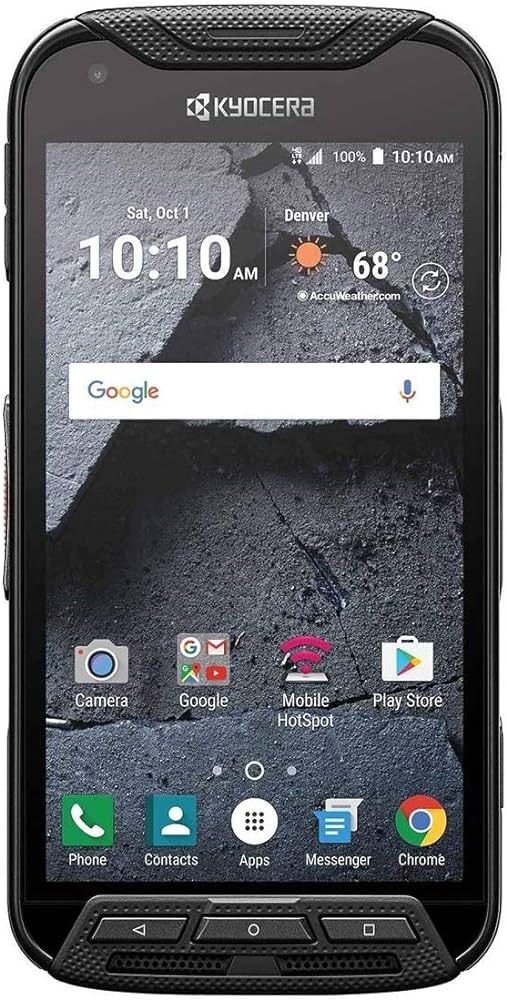Are Spectrum And Charter the Same? Unveiling the Truth Behind the Connection
Spectrum and Charter are the same company, offering telecommunications and entertainment services. Spectrum is the consumer-facing brand name, while Charter is the parent company that owns and operates Spectrum.
With a wide range of services including cable TV, internet, and phone, spectrum/charter is a leading provider in the United States. As a customer, you can expect reliable connections, high-speed internet, and a variety of channel options. Whether you’re looking to upgrade your home entertainment or enhance your business communications, spectrum/charter has you covered with their comprehensive services.
Experience the convenience and quality that Spectrum/charter brings to households and businesses nationwide.


Credit: www.mikebloomberg.com
The Background Of Spectrum And Charter
In the world of telecommunications, spectrum and charter are often mistaken as the same entity. However, it is crucial to understand the background of these two companies to realize their differences. Charter Communications, a well-known cable and internet service provider, decided to rebrand itself as Spectrum after the merger with Time Warner Cable.
This merger was a strategic move to expand their reach and market share. The rebranding brought about a change in name but also emphasized their commitment to offering enhanced services and improved customer experiences. Spectrum now offers a wide range of services, including cable TV, high-speed internet, and phone services.
This rebranding initiative has allowed Spectrum to establish a strong presence in the market and position itself as a leading provider in the telecommunications industry.
Understanding Spectrum And Charter: Is There A Difference?
Understanding the relationship between Spectrum and Charter can be a bit confusing, primarily because the two names are often used interchangeably. However, there is a nuanced difference between them, which primarily pertains to branding and corporate structure.
Charter
Charter Communications is the actual company name and operates as the parent organization. It’s a telecommunications and mass media company that provides services to consumers and businesses under several branding names, one of which is Spectrum. Charter Communications has a long history, and it went through several acquisitions and mergers to become one of the largest cable providers in the United States. One of its most notable acquisitions was Time Warner Cable in 2016, which was a significant step in its market expansion.
Spectrum
Spectrum, on the other hand, is the brand name under which Charter Communications offers its consumer cable TV, internet, and phone services. When you sign up for internet or cable, you’re likely to see the Spectrum name on your bill and promotional materials. The Spectrum brand was introduced after the Time Warner Cable acquisition to unify the various services under a single, new brand identity. This rebranding was an attempt to leave behind the often criticized customer service reputations of the acquired companies and set a fresh course under the Spectrum name.
For the end consumer, the difference might not be so apparent or even relevant. The services you sign up for—be it cable, internet, or phone—are provided by Charter Communications, but they come under the branding of Spectrum. Whether you’re interacting with customer service or paying your bill online, you’ll likely be dealing with Spectrum-branded interfaces and personnel.
Comparing Spectrum And Charter: Key Similarities And Differences
Spectrum and charter are similar in some aspects, but they also have notable differences. Both companies offer various service plans and packages to cater to different needs. Their pricing models and promotional offers vary, ensuring customers have options. When it comes to technology and equipment, spectrum and Charter utilize similar advanced systems for a seamless user experience.
However, their customer support and satisfaction metrics may differ, with certain variations in quality and responsiveness. To summarize, while spectrum and charter share some similarities, such as service plans and technology, there are also differences in pricing, promotions, and customer service.
The Legalities Of Spectrum And Charter’s Relationship
The legalities of Spectrum and Charter’s relationship largely pertain to corporate structure, regulatory compliance, and brand management. Charter Communications is the parent company, incorporated and operating in accordance with federal and state laws. It owns the Spectrum brand and is responsible for all legal obligations, including but not limited to, contracts, customer agreements, and regulatory requirements.
Charter Communications has to abide by Federal Communications Commission (FCC) regulations, as well as any applicable state and local laws governing telecommunications services. This includes adherence to consumer protection laws, which dictate transparency in billing, the provision of services, and handling customer complaints.
The introduction of the Spectrum brand, particularly after the acquisition of Time Warner Cable, also had to comply with antitrust laws. When Charter Communications acquired Time Warner Cable, the deal had to be approved by regulatory bodies to ensure it did not result in a monopoly or diminish competition in the market. This approval process examined multiple facets, including the potential impact on consumer pricing and the broader competitive landscape.
Once these legal hurdles were cleared, Charter was free to operate its acquired assets under the Spectrum brand. However, rebranding to Spectrum doesn’t absolve Charter of any legal responsibilities or liabilities associated with the services it provides. For example, if Spectrum is involved in any litigation or faces customer disputes, the legal responsibility ultimately falls on Charter Communications as the parent company.
Additionally, Charter, under the Spectrum brand, must adhere to data protection and privacy laws. This includes safeguarding customer information and ensuring secure online transactions. Compliance failures in these areas can result in legal action against Charter Communications, not just the Spectrum brand.
The Customer Experience With Spectrum And Charter
Spectrum and charter are two names often used interchangeably, leading to confusion among customers. However, the customer experience with Spectrum and Charter is essentially the same. Existing charter customers can seamlessly transition to Spectrum without any major disruptions. The perks and benefits for customers remain consistent, ensuring a satisfactory experience.
Moreover, customer satisfaction is regularly surveyed to ensure that any issues or concerns are addressed promptly. This helps enhance the overall customer experience and maintain a high level of satisfaction. With a focus on providing a seamless and enjoyable experience, spectrum and Charter strive to meet the needs and expectations of their customers.
Spectrum And Charter’s Communication Infrastructure
Spectrum and Charter’s communication infrastructure is essentially one and the same, given that Spectrum is a brand under the Charter Communications umbrella. Charter Communications owns and manages the physical and virtual networks that provide internet, cable TV, and telephone services to customers under the Spectrum brand. This infrastructure includes a vast array of technologies and hardware such as fiber-optic cables, coaxial cables, network servers, switches, and data centers, among others.
Network Technology
The backbone of the network is often based on fiber-optic technology, especially for long-haul and backbone networks that connect different regions and data centers. Fiber-optic cables allow for high-speed data transmission over long distances with minimal loss of signal quality. In more localized environments, like neighborhoods or individual service areas, these fiber-optic lines often connect to nodes, which then distribute services to households through coaxial cables.
One of Charter’s significant steps in infrastructure development was upgrading and expanding its fiber-optic network. This has been crucial for keeping up with the increasing demands for high-speed internet and streaming services, especially given the proliferation of devices and bandwidth-heavy applications in modern households.
Moreover, Charter Communications employs various technologies to optimize network performance, including advanced routing algorithms, content delivery networks (CDNs), and data caching. These technologies aim to reduce latency, increase data transfer speeds, and ensure a more stable and reliable service.
The company is also responsible for managing the “last mile” of service delivery, which refers to the final leg of the journey where the internet service reaches the customer’s premises. This part of the network architecture is incredibly vital because it directly impacts the quality of service each customer experiences.
Spectrum And Charter’s Market Presence
Spectrum and Charter are two separate entities in the market, but they do have some similarities. They both offer telecommunication services and are known for their strong market presence. Spectrum’s services are more widely available across different regions, while the charter’s footprint may be limited to specific areas.
In terms of competitor analysis, both companies face competition from other telecommunications providers, but their market shares may vary. As for future plans and expansion initiatives, both Spectrum and Charter continually strive to improve and expand their services to meet the demands of their customers.
They may invest in infrastructure upgrades, new technology implementations, or partnerships to enhance their offerings. Overall, while spectrum and charter are not the same, they share a commitment to providing reliable and innovative services in the telecommunications industry.
The Verdict: Are Spectrum And Charter The Same?
In a straightforward sense, Spectrum and Charter are fundamentally the same entity in that Spectrum is a brand owned and operated by Charter Communications. However, understanding the relationship in its entirety requires some nuance.
Charter Communications is the legal entity, the parent company that holds all the corporate responsibilities and legal obligations. It’s the organization that is publicly traded, answers to shareholders, and is regulated by governmental bodies like the Federal Communications Commission (FCC). Charter is responsible for the large-scale decisions such as mergers, acquisitions, and other corporate-level strategies.
Spectrum, on the other hand, is essentially a branding strategy by Charter Communications to unify its services and present them to the consumer market. When you sign up for cable, internet, or phone services, you do so under the Spectrum name. All the marketing, customer service, and billing are typically done under this brand. This approach allows Charter to distance the new services from old brand names that may have had reputational issues, such as Time Warner Cable, which was acquired by Charter.
Customer Perspective
From the customer’s perspective, they are generally interacting with Spectrum rather than Charter. The bills come with the Spectrum logo, the customer service agents identify themselves as Spectrum representatives, and the service trucks often have Spectrum branding. However, from a legal standpoint, any agreement or contract a customer enters with Spectrum is technically with Charter Communications.
So, are Spectrum and Charter the same? Yes, they are, but with important distinctions. Spectrum is the customer-facing brand managed by the parent company, Charter Communications. All legal obligations, regulations, and ultimate accountability rest with the Charter, even though day-to-day interactions and services are provided under the Spectrum name.
Frequently Asked Questions Of Are Spectrum And Charter The Same
What Is The Difference Between Charter And Spectrum?
Charter and spectrum are both major players in the telecommunications industry. While Charter Communications is a company that offers broadband internet, television, and telephone services, spectrum is actually a brand name under which Charter operates. So, Charter is the parent company, and Spectrum is a subsidiary brand.
Charter is the company, and the spectrum is its product brand. The services and features provided by both Charter and spectrum are essentially the same. Whether you choose charter or spectrum, you can expect reliable internet, a wide range of television channels, and quality telephone services.
Both companies aim to provide customers with high-speed internet connections and convenient bundle options, making it easier for users to access all their communication needs in one place.
When Did Spectrum Change To Charter?
Spectrum changed to charter in 2014.
Did Charter And Spectrum Merge?
Yes, charter and Spectrum have merged. The merger occurred in 2016, resulting in the formation of a united entity called Charter Communications. With the merger, Charter Communications became one of the largest telecommunications companies in the United States, offering a wide range of services, including cable television, internet, and phone services.
This merger allowed Charter Communications to expand its reach and improve its ability to provide reliable and high-quality services to customers across the nation. The merger also led to the rebranding of their cable and internet services under the name Spectrum.
As a result, customers who were previously subscribed to charter services have now been transitioned to the spectrum brand.
Conclusion
Spectrum and Charter are indeed the same company, despite the various names used. They are both part of Charter Communications, which is one of the leading telecommunications providers in the United States. The merger between Time Warner Cable and Charter Communications resulted in the creation of Spectrum as a brand.
Although Spectrum and Charter operate under different names, their services, pricing, and coverage areas are essentially the same. It is important to note that existing customers of Time Warner Cable and Charter Communications were automatically transitioned to Spectrum without any significant changes to their services.




